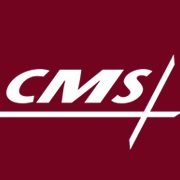CMS Grants Navigators $63M to Boost Health Insurance Marketplace
CMS is awarding organizations that incorporate navigators to assist consumers in choosing coverage through the ACA's health insurance marketplace.

- The Centers for Medicare & Medicaid Services (CMS) announced in a press release earlier this week that it will be providing $63 million in grants to both new and older organizations returning to offer health plans through the public health insurance marketplace.

The awarded funding will assist consumers in shopping for, finding the right health plans, and enrolling in coverage through the health insurance marketplace. The $63 million in grant money will go to navigators who are trained in assisting consumers and small businesses with finding the right healthcare coverage and any financial assistance through the Affordable Care Act’s exchanges.
“We are committed to making sure consumers have all the resources they need to find the right plan when open enrollment begins on November 1,” Kevin Counihan, CEO of the Health Insurance Marketplace, stated in the press release. “We know in-person assistance is critical to connecting individuals and families with quality, affordable health coverage that best meets their needs.”
In fact, navigators are able to meet in person with consumers to help them choose their coverage, according to the CMS press release. Consumers who have questions about the type of coverage available to them or need assistance with applying for insurance can work with navigators to have all of their questions answered.
For the 2017 enrollment year, 96 returning organizations and two new facilities received the grant money needed to assist consumers in finding coverage through the public health insurance marketplace. This will be the second year that CMS provides funding to navigators in what will be a three-year funding cycle.
In order to be eligible for the award, organizations needed to submit a proposal outlining how the money will be spent over a 36-month long project period. CMS is providing funding based on a 12-month routine while ongoing analysis of these navigator projects continue.
Marketplace consumers face fewer choices in 2017
While CMS attempts to strengthen the success of the public health insurance marketplace through funding navigators, there is the potential for fallout due to the fact that more health payers such as UnitedHealthcare, Humana and Aetna are backing out of participating on the exchanges.
According to a study conducted by the Henry J. Kaiser Family Foundation, as many as 2.3 million marketplace consumers may see only one payer offering plans within their particular state health insurance exchange in 2017. This would hit 19 percent of total marketplace consumers.
Another statistics coming from the McKinsey Center puts this number at 17 percent. Regardless of the exact number, consumers will have far fewer choices next year due to the fact that several national payers are dropping out of the ACA’s health insurance marketplace.
These exiting health payers have claimed that financial losses of selling plans through the exchanges have left them with no other option than to end their participation in a majority of these state markets. However, there are certain steps that health payers can take to reduce healthcare spending even under the Affordable Care Act’s new regulations.
How payers could reduce healthcare spending
Rice University released a study that shows how payers can partner with physicians to provide more efficient medical services and save costs, according to a news release from the university.
The researchers from Rice University looked at an arrangement between Cigna and a healthcare system holding multiple physician practices. Costs were reduced for patients who had Cigna coverage and were served through the Collaborative Accountable Care (CAC) initiative.
This accountable care organization (ACO) participated in shared savings with Cigna, which means they would work to keep costs low and medical care more coordinated and efficient in order to keep cost savings as well as increase revenue. The research is published in the American Journal of Managed Care and compares the revenue cycle of the partnership before and after implementation of the accountable care organization.
“There have been a growing number of studies trying to test whether coordinated care — think the Affordable Care Act’s Accountable Care Organizations — can restrain cost growth,” Vivian Ho, the chair in health economics at Rice’s Baker Institute for Public Policy and director of the institute’s Center for Health and Biosciences, said in a public statement. “The results of other studies have been mixed. Our study may have been able to demonstrate a significant savings, because the financial agreement was forged directly with physicians, rather than mixed-provider organizations.”
“Hospitals may have less incentive to restrain cost growth because so much of their revenue comes from providing inpatient care. In contrast, the share of physicians’ revenues associated with hospital care is much lower. With improved patient data provided by Cigna plus additional nursing support within the practice for follow-up, physicians can readily focus on delivering care quickly and efficiently,” Ho continued.
The results from this ACO show that healthcare spending can be reduced by incorporating greater coordination after hospital discharges especially among the patients who are at higher risk of readmission. Patient education and compliance with prescribed medication was also increased through the ACO. These steps helped reduce spending and improve the quality of care among its patient base.
Time will tell whether healthcare payers will take more steps in the coming years to transition to value-based care initiatives, reduce healthcare spending, and continue operating through the ACA’s public health insurance marketplace.
